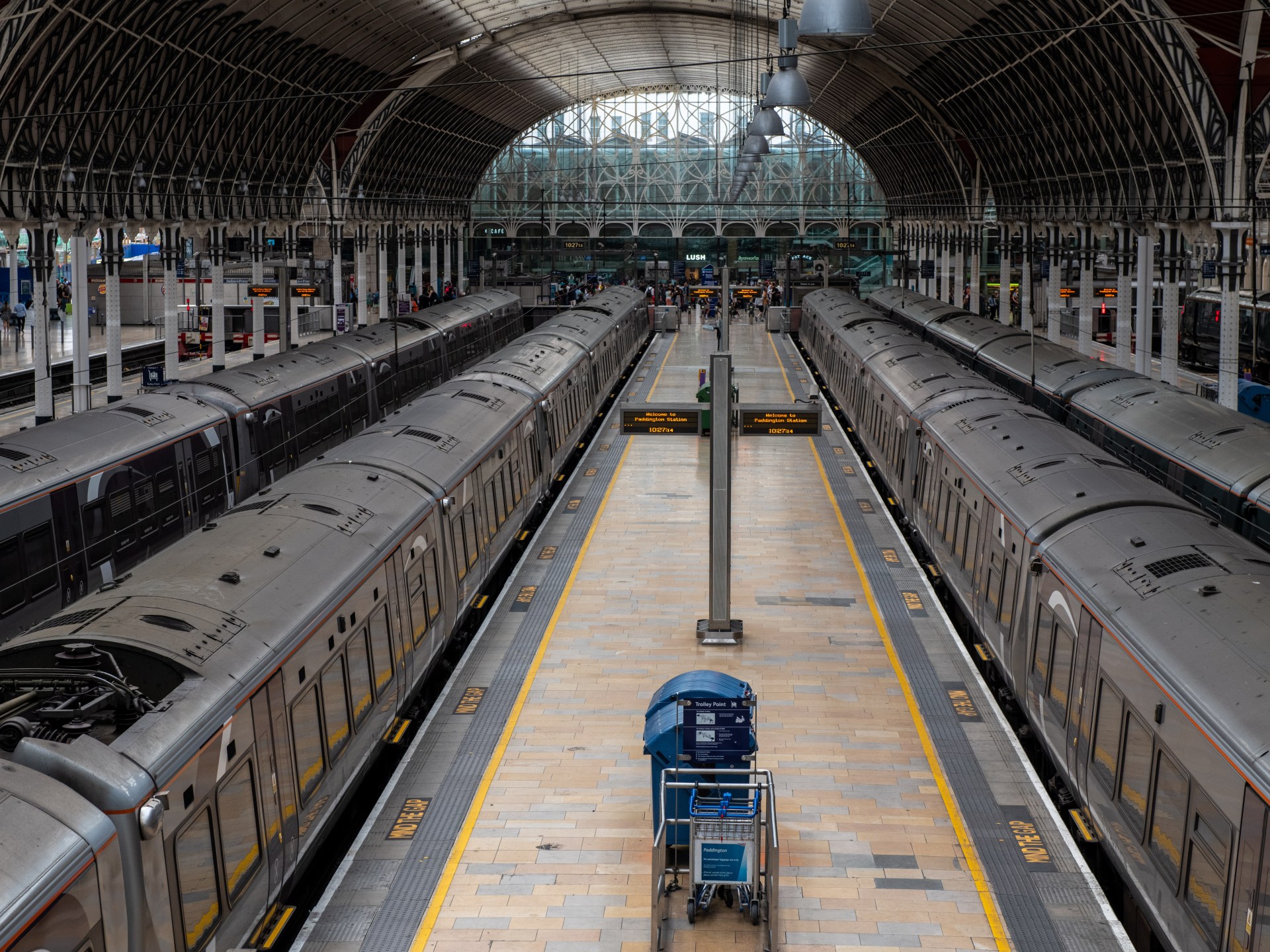LONDON
- Britain is living under the impact of successive strikes, the largest in decades, affecting sensitive sectors related to the daily life of citizens, especially the transport service, especially railways and underground trains.
And unions representing workers in the railway sector (about 120 thousand workers) announced the entry of a strike today, Sunday, which will paralyze about 90% of trains in the country, and will make traveling between major British cities an almost impossible task.
This strike is considered the largest in half a century, and is followed by other strikes in vital sectors such as the post office, education and nursing, all of which are expected to take place in the country this October.
The main driver of all these strikes is the record rise in the cost of living in Britain, after the inflation level reached 10%, and despite British Prime Minister Liz Terrace's decision to set a ceiling for gas and electricity bills so that they do not exceed 2,500 pounds per year ($ 2,900), employees are still They are demanding an increase in wages, which have been frozen for years.
paralysis in the country
Rail workers chose the strike date carefully, as it was the day the Conservative Party's annual conference kicked off in Birmingham, and thousands of attendees would find it difficult to get to the city and take part in its work.
This strike also led to more confusion in the arrival of the participants in the famous London Marathon, and a number of participants complained about their inability to reach the capital, London, the day before the start of this global race.
The strike, in which 3 unions participated - the most representative - left 10% of the trains in service across the country, and the new British government is trying to enter into negotiations with trade unions, with the latter threatening similar strikes this month.
The government faces a real dilemma in front of the increasing demands of more than one sector to raise salaries, in return for the Central Bank's rejection of these demands, claiming that any increase in salaries will lead to higher inflation rates.
According to a study by the Center for Trade and Economics Research (CEBR), which is based in the British capital, London, train strikes affect the lives of about 250,000 people on a daily basis, and each day of the strike causes economic losses of 100 million pounds ($ 125 million). .
Although tens of thousands of citizens are affected by these strikes, they find popular support, according to an opinion poll by Ipso Mori, there is an increase in the volume of popular support for the strikes of train workers, as 41% confirmed that they support the unions’ decisions to strike, while 31 % for their refusal.
Also, 52% of the respondents confirmed that they sympathized with the unions' demands, while 64% said they did not agree with the government's decision not to increase the salaries of workers in the railway sector.
Train strikes affect on a daily basis the lives of about 250 thousand people (Al-Jazeera)
storm of strikes
The railway workers' strike will not start on Sunday, until another strike is over, the Royal Mail, which employs around 170,000 people.
The strike lasted for two days, and is the first of 3 strikes to come during this month and the following month. Postal workers' unions plan to hold 19 days of strike, if the corporation refuses to respond to raising workers' wages by more than 8%.
Union workers say the company has been making profits for years without raising employee wages. In contrast, the company says that each strike costs it about £1m in losses, meaning that a 19-day strike would cost the company £200m.
Liverpool port workers also launched a strike that could last for 10 days, after rejecting the offer of the company operating the port - which is one of the largest ports in Europe - to increase the salaries of workers by 8%.
Everyone is still waiting for the nurses’ unions to vote on the decision to go on strikes this October and next November, and the education and nurses unions are among the largest in the country, and if teachers or nurses agree to go on strike, this will paralyze the two largest sectors in the country, In a sensitive period, when the demand for health services is greatest.
All of this is happening at a time when the "DON'T PAY UK" movement to not pay energy bills is turning into a protest movement that is taking to the street after it was just an online campaign to pressure the government to lower energy bill prices. You will attend any labor demonstration demanding a raise in workers' wages.

